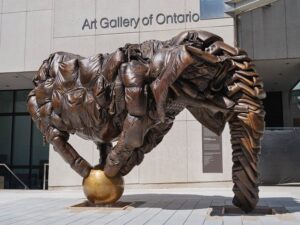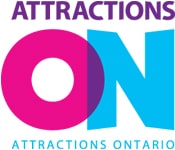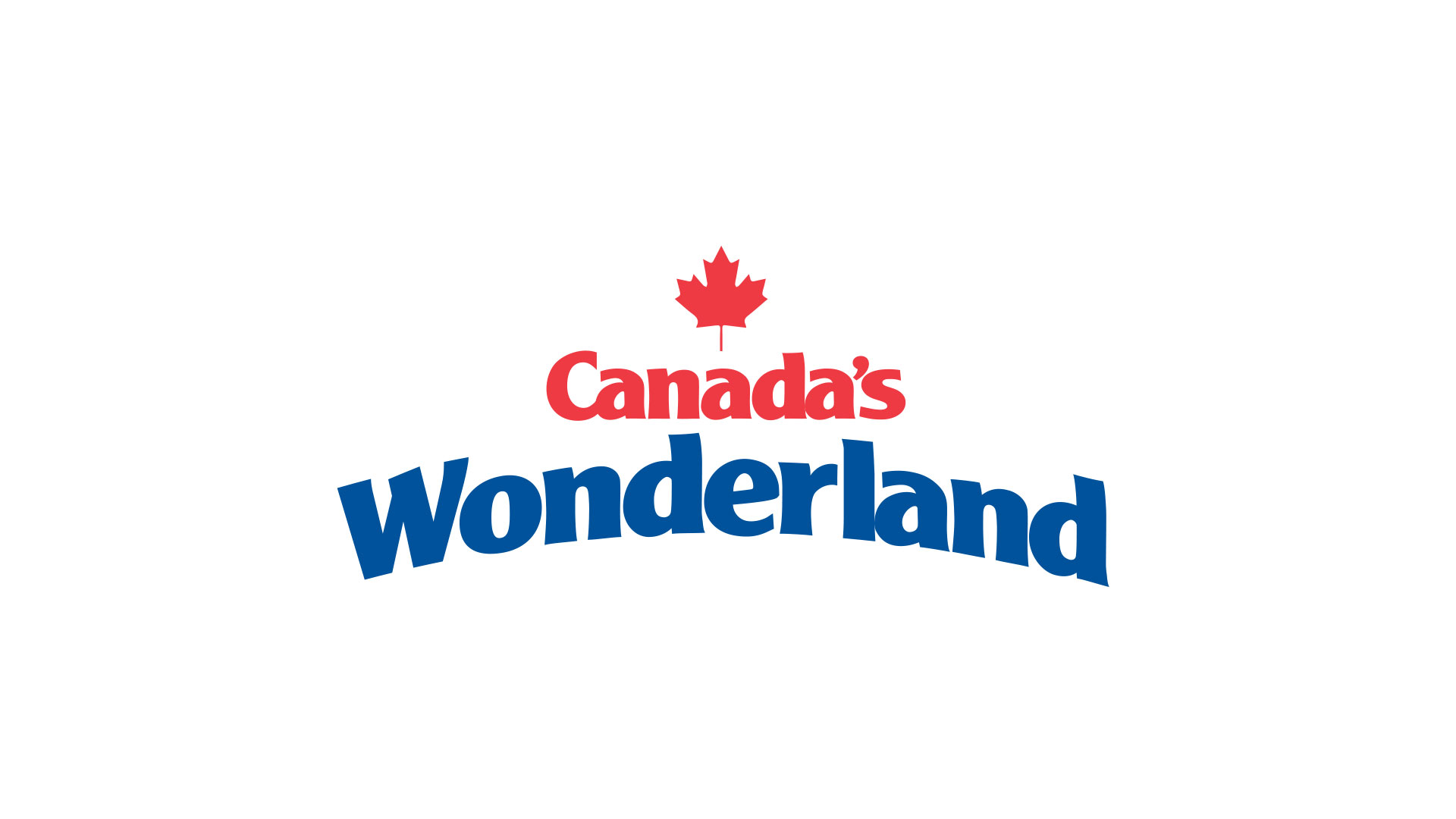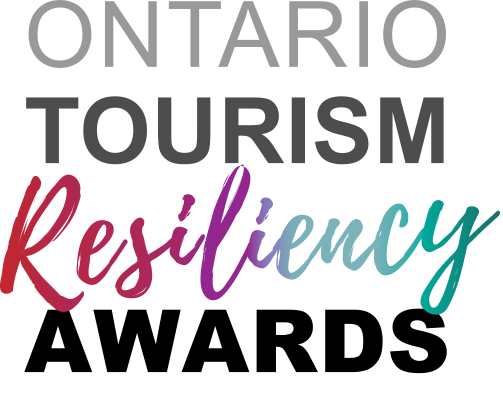Week-long hiring event February 18-24 to fill wide variety of roles VAUGHAN, ON (Feb. 6,…
AGO installs first-ever public art commission: a monumental new sculpture by Brian Jungen
At the corner of Dundas and McCaul streets in Toronto, Couch Monster: Sadzěʔ yaaghęhch’ill is Jungen’s first large-scale work in bronze

TORONTO — The Art Gallery of Ontario (AGO) has installed its first-ever public art commission, a new sculpture by acclaimed contemporary artist Brian Jungen. Renowned for his artworks made of repurposed consumer goods, Couch Monster: Sadzěʔ yaaghęhch’ill (2022) is Jungen’s first large-scale work in bronze. A poetic tribute to the plight of creatures in captivity, Jungen modeled second-hand leather furniture into the figure of a performing elephant, measuring five and a half meters long, and 4 meters tall. This new public artwork resides at the corner of Dundas and McCaul Streets, adjacent to the museum in the former setting for Henry Moore’s Large Two Forms (1966–1969).
“Monumental public art has made Dundas and McCaul a Canadian landmark, and Brian Jungen’s ambitious new work reaffirms this intersection in the global art world,” says Stephan Jost, Michael and Sonja Koerner Director, and CEO of the Art Gallery of Ontario. “Brian has created a work that is truly of this place, that will continue to shape this environment in the years to come. Thank you to Brian, our generous AGO supporters and our government partners for making this important project a reality.”
Jungen is a British Columbia-based artist of European and Indigenous heritage whose extensive body of work engages with both Indigenous materials and traditions, Western art history and popular culture. The decision to work with leather couches and chairs came from seeing discarded furniture piled on Toronto sidewalks. Finishing the work in bronze is both an homage to British Sculptor Henry Moore — whose work Jungen has long admired and engaged with – and a material interest in how over time, bronze comes to resemble leather.
“Creating work for a public space is freeing and the process – from conception to studio to foundry to installation — has been refreshing,” said artist Brian Jungen. “The foundry did an outstanding job translating leather to bronze. Like the leather couches, the more people engage with the work, the more the bronze patina will change over time. I want people to lounge on and explore and really embrace this Couch Monster – it is yours and I am so thrilled to have it live here in the years to come.”
Jungen was inspired by the story of Jumbo, a captive circus elephant killed by a train in St. Thomas, Ontario, in 1885. Jungen calls this creature a “couch monster” because captivity of any kind is transformative and will inevitably break the spirit and will of the captured. The work’s Dane-zaa subtitle, Sadzěʔ yaaghęhch’ill, translates to “my heart is ripping.”
A feat of creative engineering, Jungen completed a full size prototype at his studio in March 2020, from where it was transported to the Walla Walla Foundry in Washington state to be cast in bronze. The work arrived in Toronto in June 2022, and at the artist’s request, the installation was blessed in an intimate ceremony led by Dr. Duke Redbird, an Elder of the Saugeen First Nation.
Funding for the artwork came from a group of generous private donors and from government partners, including a significant investment from the Government of Canada, through the Federal Economic Development Agency for Southern Ontario (FedDev Ontario), and the Canada Council for the Arts.
“The Government of Canada is proud to support projects that build and preserve community infrastructure to support the strength of local communities and improve the lives of its residents. Today’s investment in the Art Gallery of Ontario will build a vital community green space and support Canadian and Indigenous art,” says the Honourable Helena Jaczek, Minister responsible for FedDev Ontario.
The sculpture is located near the museum entrance and will be accompanied by a descriptive panel, written in Anishinaabemowin and English. A hardcover catalogue, featuring documentary footage and commentary, will be published by the AGO in autumn 2022. For more details about the sculpture, visit ago.ca/exhibitions/brian-jungen-sculpture-commission.
On June 22, the AGO invites the public to join us in welcoming the sculpture. During this free celebratory moment, Gallery Guides will be on hand to discuss. For more details about this free event, visit ago.ca/events/meet-couch-monster-sadze-yaaghehchill.
ABOUT BRIAN JUNGEN
For more than two decades, Brian Jungen (b. 1970, Fort St. John, British Columbia; lives/works: Northern BC (Treaty 8 territory)) has been lauded for his ability to transform everyday commercial products into a range of artworks. His sculptures and installations imitate forms as large as the skeleton of a whale, composed of plastic chairs, as well as Indigenous ceremonial objects such as masks produced from dissected and reconfigured Nike Air Jordan trainers. These works address the issues of dispossession and appropriation latent in the aesthetics of contemporary global economic, political, and cultural conflict. Jungen has presented significant solo exhibitions at the Hammer Museum, Los Angeles (2021); Art Gallery of Ontario, Toronto (2019, 2011); Henry Art Gallery, Seattle (2017); Kunstverein Hannover, Germany (2013); Bonner Kunstverein, Germany (2013); National Museum of the American Indian, Washington (2009); Museum Villa Stuck, Munich (2007); Tate Modern, London (2006); Vancouver Art Gallery (2006); Witte de With, Rotterdam (2006); and New Museum, New York (2005). Modest Livelihood, a collaborative work with Duane Linklater, has been shown at the Institute of Modern Art, Brisbane (2019); Edinburgh Art Festival (2014); Art Gallery of Ontario, Toronto (2013); and Walter Phillips Gallery, Banff Centre, in collaboration with dOCUMENTA (13) (2012).
Jungen’s work has been included in recent group exhibitions at the Toronto Biennial of Art (2022); FOR-SITE Foundation, San Francisco (2021); Copenhagen Contemporary, (2021); Crystal Bridges Museum of American Art, Bentonville (2018); Liverpool Biennial (2018); Institute of American Indian Arts, Santa Fe (2017); National Gallery of Canada, Ottawa (2017, 2013); De Paul Art Museum, Chicago (2016); Vancouver Art Gallery (2016); and the 9th Shanghai Biennale (2012). In 2002, he won the inaugural Sobey Art Award and the Gershon Iskowitz Prize in 2010. Jungen is a graduate of the Emily Carr College of Art and Design.
@AGOToronto | #SeeAGO
The AGO gratefully acknowledges the following funders for their exemplary support in bringing this commission to life:
The Renette and David Berman Family Foundation
Charles Brindamour & Josée Letarte
Canada Council for the Arts
Bob Dorrance & Gail Drummond
Angela & David Feldman
Government of Canada support through the Federal Economic Development Agency for Southern Ontario (FedDev Ontario)
Hall Jackman Foundation
Phil Lind & Ellen Roland
T.E. Meighen Family Foundation
Partners in Art
Paul & Jan Sabourin
Anonymous
Public talks related to the commission are presented as part of ArtworxTO.
Additional support provided by the Henry Moore Foundation.
ABOUT THE AGO
Located in Toronto, the Art Gallery of Ontario is one of the largest art museums in North America, attracting approximately one million visitors annually. The AGO Collection of more than 120,000 works of art ranges from cutting-edge contemporary art to significant works by Indigenous and Canadian artists and European masterpieces. The AGO presents wide-ranging exhibitions and programs, including solo exhibitions and acquisitions by diverse and underrepresented artists from around the world. In 2019, the AGO launched a bold new initiative designed to make the museum even more welcoming and accessible with the introduction of free admission for anyone 25 years and under and a $35 annual pass. Visit AGO.ca to learn more.
The AGO is funded in part by the Ontario Ministry of Heritage, Sport, Tourism and Culture Industries. Additional operating support is received from the City of Toronto, the Canada Council for the Arts and generous contributions from AGO Members, donors and private-sector partners.



This Post Has 0 Comments